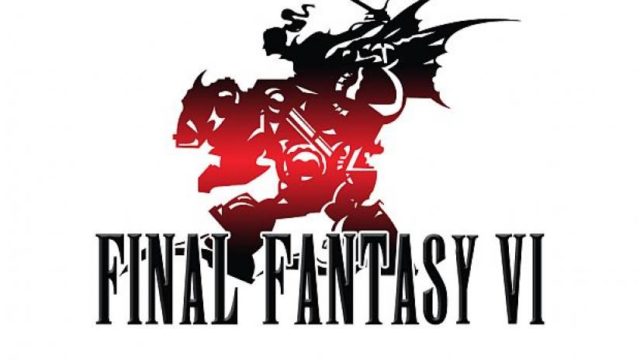Book Club is where we take a look at books about the video game industry and its creators, offering our impressions and insights regarding the writing within. Part review, part reflection, Book Club is a great way to find something new to read about all of our favorite pastime.
Order a copy of Final Fantasy VI here.
- Written by Sebastian Deken
- Publisher: Boss Fight Books (July 13, 2021)
- Length: 224 pages
- ISBN: 978-1-940535-28-9
If you grew up in the ‘90s, you would know Final Fantasy VI, the last entry in the series on SNES, as Final Fantasy III. That game went on to become one of the most beloved installments in the history of the Final Fantasy franchise. This is in no small part owed to the incredible craftsmanship that went into its development. The talent associated with FFVI is stunning: Yoshinori Kitase, Hiroyuki Ito, Yoshitaka Amano, and Nobuo Uematsu. It is Uematsu, the composer of FFVI’s score, that is the focus of Boss Fight Books’ latest release, Final Fantasy VI. In FFVI, writer Sebastian Deken digs deep into the intricacies of the game’s music and asserts how deftly it both supports and augments the experience.
Deken is a writer and a musician, so his approach to FFVI was to combine both his talents in formulating a unique analysis of the game. As he told CodeWritePlay in a recent interview, he “pitched [the book] as sort of a look at [Final Fantasy VI] through the music and how the music functions within the game to advance the drama and to hold the game together.” Those who have read Andrew Schartmann’s Koji Kondo’s Super Mario Bros. Score (33 1/3) will feel right at home with Deken’s work here (indeed, Deken even references Schartmann throughout FFVI). In a nutshell, Deken is writing a book about music that people who can read sheet music and understand musical theory will really dig. However, even someone like me who loves music but can’t read a note of sheet music can still enjoy his analysis. Will you get more from the book if you’re learned in music and musical composition? Sure. But even without those capabilities there is still plenty to absorb and appreciate about FFVI.
The book, as all Boss Fight Books publications tend to be, is short, clocking in at a brisk 224 pages. Within those two hundred-plus bound sheets of paper is a nonetheless in-depth examination of a seminal classic. Deken begins by charting the history of music in games, going from the halcyon, rudimentary days of PONG and early arcade machines to the more robust capabilities of NES and SNES. By today’s standards NES and SNES are rather primitive compared to consoles like Switch, but as Deken illustrates, in the ‘80s when NES was finding its way into the hands of video game composers, it represented a true sea change. NES had five audio channels to play with, and Deken talks much about how composers were able to utilize them to recreate all sorts of musical genres that had been previously impossible to manifest in a video game. When SNES appeared with its eight sound channels, composers could take their soundtracks even further.
Deken’s prose is great. He’s able to take some fairly heady musical concepts and terminology and make it all approachable for the average layman to wrap their head around. Being able to speak with authority about such a nuanced topic as music theory without sounding stuffy or dull isn’t easy, but Deken pulls it off with aplomb. His knowledge of video games, the music within them, and the composers themselves also stands out. Deken notes how Koichi Sugiyama laid the groundwork for Uematsu’s creations with his own compositions in the original Dragon Quest (Dragon Warrior in the West). Deken sifts through the actual musical scores to point out similarities and deviations between not just Uematsu and Sugiyama’s works, but also Uematsu and other, classical composers. Admittedly, some of the jargon wasn’t easy for me to interpret when first looking at the musical notes on the page, but the way Deken breaks things down was more than enough for me to ingest the concepts he introduced and begin to conceptualize them. Seeing how Uematsu was able to evoke so much emotion throughout FFVI via music was elucidating, to say the least.
I appreciated how Deken spent part of the book demonstrating how impactful video game music has become thanks to the efforts of composers like Uematsu. The proliferation of soundtracks for sale or streaming in Western markets has finally begun to catch up with Japan, but in both regions the embracing of video game music as so-called real music is a testament to the quality of the work itself. People’s memories of playing games are often equally filled with the familiar tunes of their soundtracks as much as anything else. For all his praise of Uematsu, however, I do feel that Deken slightly downplays the impact of composer Koji Kondo. It’s fair to say that Uematsu’s work is arguably more complex and layered than Koji’s during the NES and SNES eras, but Koji set the stage for modern game design and how music is integrated into the interactions that players engage with. I’m not saying Deken kicks Kondo to the curb, of course, just that perhaps Kondo deserved more credit here.
There were a couple of points in the text where I felt Deken didn’t totally hit the mark. Specifically the idea of appropriation that he mentions early on. Without belaboring the point, I think it’s a completely inappropriate comparison, especially given Uematsu isn’t even American. The preoccupation with issues like appropriation in art and entertainment is, in my opinion, an especially Western one. Even without that caveat, I would also argue that the reasoning used to back this notion isn’t very compelling. It’s a small piece of a much larger analysis (Deken lingers on the idea for not even a paragraph), but stood out in what I felt was an otherwise spot-on look into Uematsu’s accomplishments in FFVI’s soundtrack. This also isn’t a criticism of Deken—I wouldn’t think to say he shouldn’t share the opinion that he did—instead, I hope it’s clear that I simply didn’t think the comparison was valid as it was laid out.
Regardless, Final Fantasy VI is yet another delightful addition to Boss Fight Books’ lineup. The topic of video game music continues to be underappreciated from an academic standpoint. Writers like Deken are able to dig into the nuances that would otherwise escape the average gamer. As we continue to analyze video games and what makes them tick, being able to speak about classic soundtrack’s like Uematsu’s score for FFVI will be critical as we move forward. This is a must-read that I highly recommend to fans of games, music, or both.
Nintendojo was provided a sample of this book for review by a third party, though that does not affect our recommendation.




 ShareThis
ShareThis








